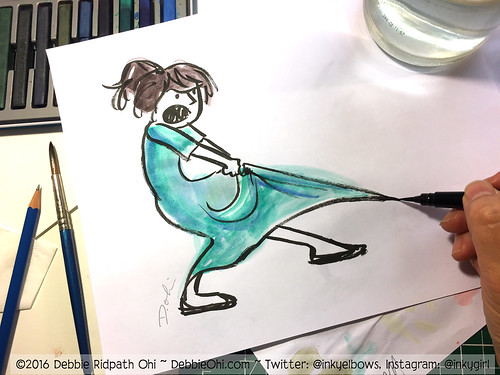 A few days ago, I commented on a Twitter post about a hot-button issue. I don’t normally do that, but I thought I was making a neutral, expanding-the-argument kind of comment.
A few days ago, I commented on a Twitter post about a hot-button issue. I don’t normally do that, but I thought I was making a neutral, expanding-the-argument kind of comment.
You can tell where this is going can’t you?
Yeah.
Someone read my comment and assumed I was saying something I wasn’t; pigeon-holed me as someone from the completely different end of the ideological spectrum; and proceeded to make snarky, personal comments every time I tried to defuse the situation.
I had that hot-and-sweaty, blood-pounding-in-my-face, pit-in-my-stomach sensation we all remember so well from the injustices of being a misunderstood 12-year-old. I wasted hours constructing careful answers and psyching myself up to open up my Twitter feed, wondering if I would find an olive branch or a minefield.
It wasn’t fun.
It sucked all the creativity out of my day.
It was such a waste of time.
And the irony of it was, I had, that very morning, reposted Austin Kleon’s advice not to pick fights with strangers on social media!
The Prompt
Find an issue that you COULD have a fight with someone about on social media and instead, write a story.
Tips
- Make it something you really, really care about.
- Have a protagonist and an antagonist who feel strongly about either side of the argument.
- Give the antagonist a legitimate reason to feel that way — don’t make them a cardboard cut-out/cartoon villain. (This might be hard, but will result in a better story, and a better you!)
- You don’t have to be sympathetic to the opposing point of view, but you do have to grant some humanity to the person who holds that view. Grace them with some nuance. It’ll make for a better story, and it’ll intrigue the reader.
- It will make your story and its outcome surprising and memorable.
- Consider leaving the story slightly unresolved. Life usually is. Maybe there is a moment when one (or both) characters have a glimmer of understanding (or of seeing the other person as a real human), or maybe they miss that moment entirely.
- When working with two sides of an issue, you can show how the ‘good’ character could easily become the ‘bad’ character if only they…{insert the line your character will not cross here] and vice versa.
- Because this is a short story, focus on one angle of an issue, one comment, one moment in the character’s lives.
- Maybe let the exchange play out on a simulated social media exchange.
- Maybe have the characters in another time and place, debating face to face, or through some completely different medium.
I promise you that, if you write a story instead of picking a fight with a stranger on social media, you’ll have a better day than I did last week 😉






 In James Blish’s Surface Tension (
In James Blish’s Surface Tension (







![[Write On Wednesday] PostModern Pop Songs](https://storyaday.org/wp-content/uploads/2016/03/ehimetalor-akhere-unuabona-Ks4QgxeHlm0-unsplash-1200x800.jpg)